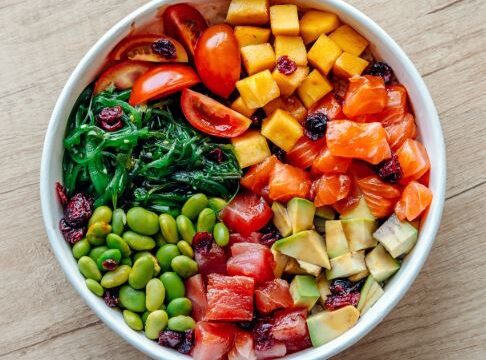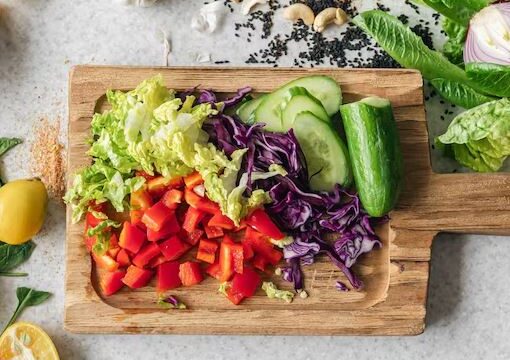Modern life often feels like a constant balancing act. Between work, errands, family, and unexpected challenges, it’s easy to lose focus or feel emotionally scattered. Yet one of the most natural ways to restore balance lies in something we already do every day—eating. Food not only fuels the body but also influences emotional steadiness and mental clarity. Understanding how to use food to stay centered during busy days can turn mealtime into a calming, grounding ritual instead of just another task on your to-do list.
Staying centered begins with recognizing that your body and mind work as a team. When the body receives nourishing foods in balanced amounts, the brain responds with improved focus, steadier moods, and a calmer sense of control. On hectic days, it can be tempting to grab a sugary snack or skip meals altogether, but these habits often backfire by causing energy spikes and crashes that make stress feel worse. The goal is to choose foods that promote even energy levels and emotional stability throughout the day.
One of the most effective ways to stay centered is to start the day with a grounding breakfast. A mix of complex carbohydrates, healthy fats, and protein provides steady energy and helps prevent the mid-morning crash. Whole-grain oatmeal topped with berries and a sprinkle of chia seeds is a simple example. The fiber in oats and berries slows digestion, keeping blood sugar levels balanced, while the omega-3 fats in chia seeds support brain function. A plant-based smoothie made with spinach, banana, and nut butter can also offer calm, sustained focus for morning meetings or commuting.
As the day progresses, lunch plays a key role in maintaining emotional balance. Midday fatigue often leads to poor food choices, especially when you are in a rush. Meals rich in colorful vegetables, lean proteins, and slow-digesting grains can help you remain alert without feeling overly full or sluggish. A salad with quinoa, avocado, roasted vegetables, and chickpeas, for example, delivers a satisfying combination of fiber, antioxidants, and plant protein. Avocados provide heart-healthy fats that support brain health and a feeling of calm concentration.
Snacking wisely throughout the day also contributes to staying centered. Instead of reaching for processed snacks that are high in refined sugar or artificial ingredients, choose whole foods that provide lasting energy. A handful of almonds, apple slices with peanut butter, or a small serving of yogurt with fruit can prevent dips in blood sugar that often trigger irritability or fatigue. Keeping balanced snacks nearby reduces the likelihood of impulsive eating, especially when stress is high or time is limited.
Dinner is another opportunity to bring the body back into balance after a demanding day. Eating too heavily or too late can interfere with digestion and sleep, while a nourishing, moderate meal helps your body relax and reset. Including foods rich in magnesium, such as leafy greens, lentils, or brown rice, can naturally calm the nervous system. Pairing these with vegetables cooked in olive oil and a lean source of protein like lentils or tofu creates a gentle but satisfying meal that promotes emotional steadiness in the evening.
Beyond what you eat, how you eat is just as important for staying centered. Eating mindfully—without distractions like phones or screens—helps you connect to your body’s hunger and fullness cues. Taking the time to chew slowly and appreciate the flavors of your meal gives your nervous system a signal of safety and relaxation. When the body feels safe, the mind follows, allowing stress levels to lower naturally. Even taking a few deep breaths before eating can help shift you out of a hurried mindset into one of presence and gratitude.
Hydration also plays a quiet yet powerful role in emotional balance. Even mild dehydration can lead to fatigue, irritability, or difficulty focusing. Instead of relying solely on coffee or energy drinks, aim to drink water consistently throughout the day. Herbal teas like chamomile, mint, or rooibos can be calming alternatives when you crave warmth or flavor. Adding fresh lemon, cucumber, or mint leaves to your water makes hydration more enjoyable and refreshing.
Caffeine is worth considering carefully, especially during busy periods. While a morning coffee can boost alertness, excessive caffeine throughout the day can increase feelings of restlessness or tension. Moderation is key—try to enjoy your coffee earlier in the day and pair it with food to reduce its impact on your stress response. If you find yourself feeling jittery or anxious after coffee, green tea may be a better option because it provides a gentler energy boost along with calming compounds like L-theanine.
For many people, emotional balance is also supported by consistent eating times. Skipping meals or eating erratically can send confusing signals to the body, making it harder to maintain steady energy. Establishing a regular rhythm of breakfast, lunch, dinner, and snacks teaches the body when to expect nourishment. Over time, this rhythm can become a comforting form of structure amid the unpredictability of a busy schedule.
Food can also become a meaningful form of self-care. Cooking your own meals, even simple ones, connects you with the natural rhythm of preparing, eating, and nourishing yourself. Choosing ingredients that are fresh and colorful brings an element of mindfulness and creativity into your day. When you cook with care, you are not just feeding your body—you are reminding yourself that you deserve time, attention, and nourishment even when life feels rushed.
It’s equally helpful to recognize how certain foods influence emotional patterns. Highly processed foods, heavy in refined sugars or artificial additives, often lead to fluctuations in mood and concentration. On the other hand, foods rich in vitamins, minerals, and natural compounds—such as leafy greens, berries, whole grains, and nuts—support a more consistent and peaceful mental state. While it’s fine to enjoy comfort foods occasionally, centering your diet around natural, whole ingredients helps you feel grounded and emotionally resilient in the long run.
Finally, using food to stay centered is about cultivating awareness rather than perfection. Everyone has moments when life feels overwhelming, and reaching for quick food solutions may happen. The goal is not to feel guilty about those moments but to gently guide yourself back toward habits that support your wellbeing. Each meal is an opportunity to choose calm over chaos, nourishment over neglect, and self-compassion over stress.
When you view eating as more than a task and instead as a form of daily care, food becomes a quiet anchor in your day. It can steady your thoughts, calm your emotions, and remind you to slow down, even for a few minutes. Staying centered through food is not about rigid rules or diets—it’s about listening to your body, respecting your needs, and finding balance in small, consistent ways. On even the busiest days, that simple act of mindful nourishment can be the most grounding gift you give yourself.






